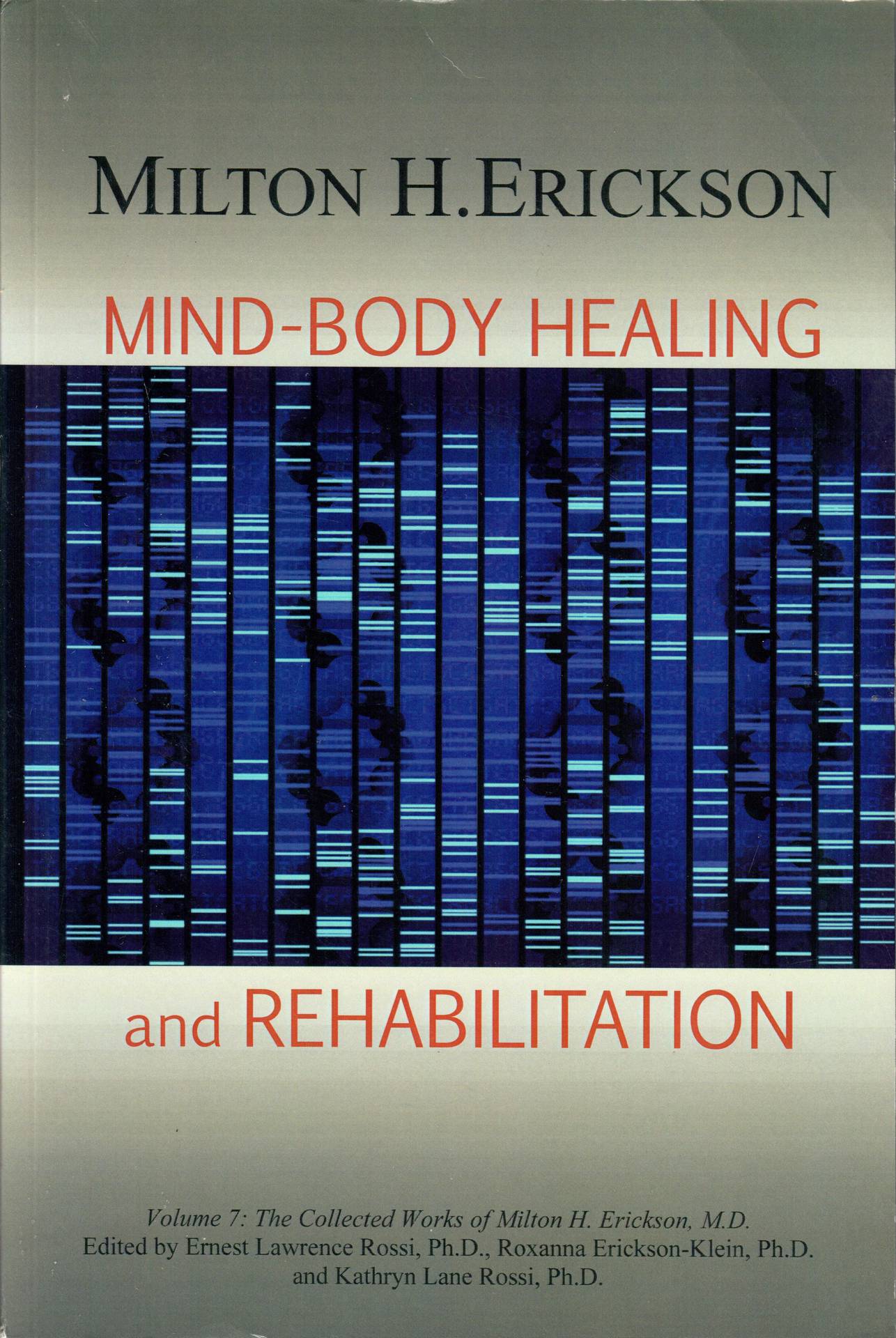Embody Serenity
Mind-Body Healing and Rehabilitation
Volume 7: Collected Works of Milton H. Erickson, MD
Ernest L. Rossi, PhD, Roxanna Erickson-Klein, PhD and Kathryn Rossi, PhD, Editors

This book is available through The Milton H. Erickson Foundation Press.
This volume illustrates how classical psychosomatic medicine becomes psychosocial genomics just as surely as the 21st century becomes the 22nd. This is an example of how science is self-correcting and continually evolving. Our new edition of Milton H. Erickson’s Collected Works is being updated with current concepts of neuroscience, psychosocial genomics, and bioinformatics for students, clinicians, and researchers who wish to extend his innovative therapeutic approaches into the future.
Erickson mediated the transition between classical hypnosis as a curious alchemy of abnormal states of mental dissociation and suggestion to a new form of psychotherapy when he began publishing his early studies of psychosomatic phenomenon in the 1930s.
Most historians would agree that mesmerism and hypnosis had played a central role in the early studies of psychopathology and psychotherapy. The directive and authoritative methods associated with old-style hypnosis were supplanted on the one hand by the seemingly more sophisticated approaches of the psychoanalytic schools, and on the other hand by cognitive-behavioral schools of psychology. The situation might have continued in just this manner with hypnosis regarded as nothing more than a curious dead end in the history of psychotherapy. Milton H. Erickson, however, mediated the transition of this potential dead end to the permissive, naturalistic, and utilization approaches of modern psychotherapy as illustrated here.